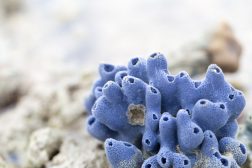Definition
noun, plural: hybridizations
(reproductive biology) The act or process of mating organisms of different varieties or species to create a hybrid
(molecular biology) The process of forming a double stranded nucleic acid from joining two complementary strands of DNA (or RNA) (as in nucleic acid hybridization)
Supplement
Hybridization is the process of producing a hybrid. A hybrid, in general sense, is any of mixed origin or composition, or the combination of two or more different things.
In reproductive biology for instance, hybridization (also spelled hybridisation) refers to the process of producing offspring by mating two parents from different varieties or species. It is sometimes used synonymously with crossbreeding, which is defined as the process or the act of producing offspring particularly through mating two purebred individuals but come from different breeds or varieties, (sometimes, even species). However, hybrid, rather than crossbreed, is more preferred for use to refer to plant offspring, even produced through crossbreeding. Hybridization in plants is important especially in agriculture wherein it is applied to come up with a hybrid crop that is both hardy and disease-resistant. In animals, ligers and mules are examples of a hybrid.
In molecular biology, hybridization is the process of forming a double-stranded nucleic acid from two complementary strands of DNA (or RNA). In particular, it is referred to as nucleic acid hybridization.
Variant(s):
- hybridisation
See also:
- crossbreeding (reproductive biology)
Related term(s):
- Cell hybridization
- Fluorescence in situ hybridization
- In situ hybridization
- In situ nucleic acid hybridization
- Interspecific hybridization
- Intraspecific hybridization
- Overlap hybridization
Related form(s):
- hybrid (noun)
- hybridize or hybridise (verb, to produce a hybrid)







